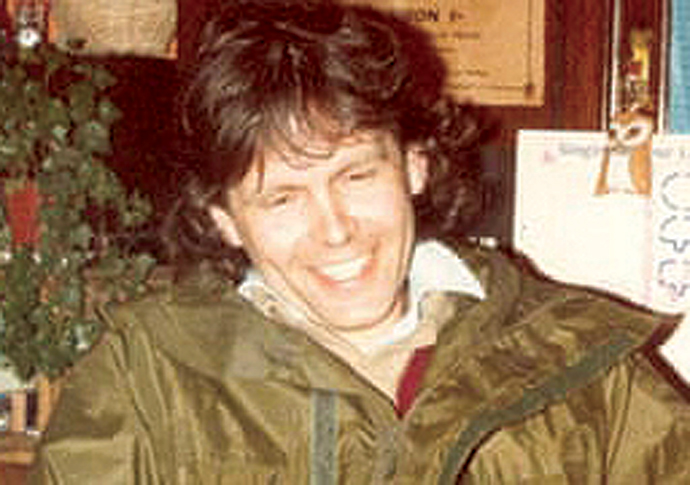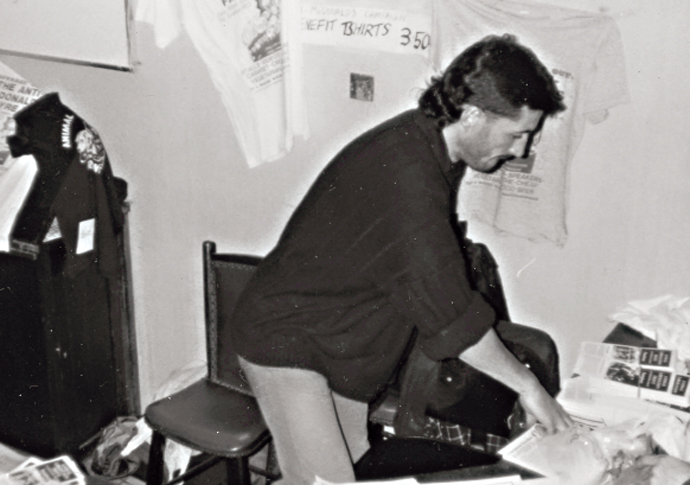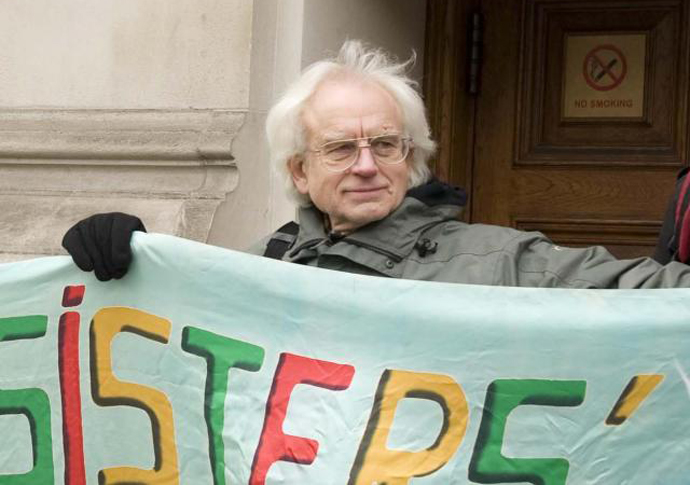How ‘spy cops’ posed as activists to infiltrate environmental campaigns
Peace News founder warns that inquiry into undercover policing is too ‘constrained’
Friday, 23rd April 2021 — By Tom Foot

The identity of many ‘spy cops’ remains unknown
A CAMPAIGNER who set up the London Greenpeace group 50 years ago has told how it felt to find out about police infiltration as they planned climate change protests in the capital.
Details of how Albert Beale and his colleagues were targeted for secret surveillance are part of the ongoing Undercover Policing Inquiry – better known as the “spy cops” scandal.
Mr Beale, who founded the group in 1971, said: “I hadn’t realised at the time of course. Perhaps I’m naive, perhaps it shows I’m a good pacifist who thinks the best of everybody. Now looking back there are one or two of us I have suspicions about.”
He added: “We know policing covers politics in this country, so I wasn’t surprised that it was happening. But I was surprised about the number of cases of fake relationships with activists, all of which were sanctioned by their managers.”
The inquiry is investigating the work of the Met’s Special Demonstration Squad (SDS) and what happened after undercover officers went in, with a new tranche of unseen documents released this week.

Bob Lambert
One of them, Bob Lambert, went as far as fathering a baby with a woman who thought he was a genuine activist.
He left his post as a lecturer at London Met university in 2015 after his past was revealed.
He apologised previously for his “long-term relationship with [the woman] who had every reason to think I was a committed animal rights activist and a genuine London Greenpeace campaigner.”
The London Greenpeace group was infiltrated following publication of an “influential article” in Peace News, a pacifist newsletter which is run from offices in Caledonian Road, King’s Cross.
Mr Beale had, with the group, helped organise peaceful protests including the mass dumping of non-returnable bottles on the steps of Marble Arch long before single-use plastic became a vogue political issue.
The group also staged a protest walk from London to Paris in 1973 were he and others chained themselves to pillars in the Notre Dame in Paris.

John Dines
The Peace News article “encouraged people everywhere to organise themselves to take practical action, and to network with others in order to build up strong and lasting movements to effect real change,” documents recently released to the inquiry said.
By the early 1980s two police officers had infiltrated the group.
One has been named as Mr Lambert, who the inquiry documents said was able to “influence the political direction” of London Greenpeace by authoring “key documents”.
Mr Beale, one of 100 people named as ‘core participants’ in the inquiry due to the surveillance his group was put under said: “According to internal records, at one meeting the number of corporate and undercover police spies would have been as many as our people in the meeting. Of course the infiltration could have an influence.”
Mr Lambert and, a second “spy cop” watching London Greenpeace, John Dines, can both be named legally, but there are dozens of undercover officers whose real names, and code names, are being kept secret by the inquiry.

Albert Beale
This is causing much frustration to other campaign groups who believe they were spied upon but so far have no way of proving it.
It has already been revealed several well-known and prominent people were being spied upon at different times including the Labour MP Diane Abbott, Lord Peter Hain and writer Tariq Ali.
Mr Beale said: “Overall the inquiry is very constrained. They want to know the effects of undercover policing, but not if you cannot prove it happened yourselves.
“I think that in government circles they didn’t realise how much was going to come out of this.”
The inquiry has already been running for five years and is said to be the costliest and most expansive in British history, with more than one million pieces of evidence.
Many “spy cops” assumed the names of children who had died in the past.
In 2011, Mr Beale said he and some of his fellow campaigners “outed” Mr Lambert while he was speaking on a stage.
“My friends had found old photographs and old correspondence,” he said.
“When I saw those photos, I immediately remembered him.
“The day we outed Lambert, I was standing face to face with him on a stage giving him a leaflet as he was speaking at a meeting.”
“It was really all down to detective work from our side.”